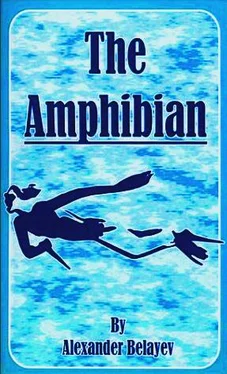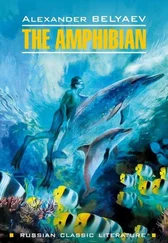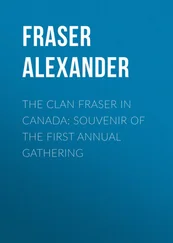As the harbour and bay come to life the clugging of ships’ engines closes upon Ichthyander. He opens his eyes, shakes his head to drive away the last of sleep and propells himself up.
Surfacing, he takes a careful look round for any boat or schooner, sees none anywhere near enough to bother, and treads water.
There are only cormorants and sea-gulls round him, skimming the water often so closely that their chests of wing-tips touch its mirror-like surface, sending tiny wavelets scurrying away. The cawing of the white sea-gulls is like a child crying. Swishing with its mighty wings through the air directly above Ichthyander so that he fancies he’s struck by a minor gale, a huge snow-white albatross heads shorewards. The red-beaked orange-clawed bird has black-fringed wings, every inch of twelve feet from tip to tip. It’s not without envy that Ichthyander watches it go. What wouldn’t he give to have such wings!
Night is retreating behind the distant mountains in the west. The eastern sky is slowly turning rosy. Barely perceptible ripples appear on the ocean, like so many tiny streaks of gold. When the sea-gulls soar up they turn pink.
Blue patterns crease the pale level surface of the sea as a gentle breeze starts to blow. It gathers force; the restless blue becomes deeper. The first yellowish tongues of foam begin to lap the beaches. The water closest inshore turns green.
A string of schooners comes in sight, low on the water. Ichthyander remembers his father’s orders to avoid people and goes down in a steep dive. Soon he’s back in the cold current that will carry him further offshore, eastwards. In the lilac twilight that reigns at this depth red, yellow and brown fish flitter about like a motley swarm of butterflies.
A buzzing sound comes from above; for a moment the water darkens. That must be a sea-plane flying low.
Once, he recalls, a sea-plane landed on the water close to him. He went for a doser look, held onto a float — and came very near to losing his life. All of a sudden the sea-plane took off and Ichthyander was whisked some thirty feet aloft before he recovered enough presence of mind to jump for his life.
* * *
Ichthyander looks up. The diffused ball of sun is almost plumb overhead, indicating that midday is close at hand. The surface of the water is no longer a vast mirror that faithfully reflects the sea-bed where it is raised, the bigger fish and Ichthyander. Like a fun-house mirror it is now distorted and assuming an infinite variety of shapes.
Ichthyander comes up. As he draws near the surface he becomes aware of a choppy sea. Presently his head and shoulders are clear and he’s riding up on the crest of a wave, then down, then up again… Oho, the sea is choppy! There’s quite a surf already where the swell of the sea breaks upon the shore, roaring lustily, overturning big boulders. The water next to the white foamy line has been churned a yellowish green while a sharp south-westerner goes on whipping up waves, tearing off white tips of foam. Every now and then spray blows into Ichthyan-der’s face giving him intense pleasure.
Why is it, Ichthyander wonders, that when you swim through the waves they seem deep-blue but when you look back they are much paler?
Shoals of flying fish skim away. Gliding up over the wavetops and down across the troughs they fly some forty feet and touch down, and fly up again. The gulls dart about, crying. The fastest birds there are-frigates — cut the air with their wide wings. The one over there — with a huge curved beak and sharp claws, dark-brown feathers shot with green and an orange-hued crop — is a male. His mate, white breasted and with paler plumage, keeps at his side. Suddenly she drops down like a stone and the next moment is up again, a silver-scaled fish struggling in her beak. Albatrosses are soaring aloft, a sure sign of a storm brewing.
Somewhere up there, dauntless birds with the undignified name of screamer are already speeding to meet the inky clouds. The fishing smacks are less eager to encounter the storm. Under a full press of sail they seek the shelter of the harbour.
Greenish twilight reigns below the waves and the amphibian tells his way by the big ball of sun that can still be seen through the double screen of gathering cloud and water. He’s got to reach the oyster-ground before the sun is blotted out by clouds if he’s to have his lunch at all. Swimming frog-wise he spurts on.
From time to time he turns over on his back to take his bearings by the blob of sunlight overhead which is only a shade lighter than the surrounding bluish-green semi-darkness. His gills and skin are of great help too, registering little changes in water content. Near oyster-grounds water is richer in oxygen and feels altogether lighter and more pleasant to the body, for there’s less salt in it. So Ichthyander tastes the water. Like an old sea-wolf that can tell the approach of land by signs revealed only to him, Ichthyander is sure of his way.
At last to his right and left loom up the long-familiar outlines of underwater cliffs. There is a piece of level ground between them with another wall of a cliff behind. Ichthyander calls the spot his underwater harbour, for it’s calm in the worst of storms.
It’s a harbour for multitudes of fish as well, the water is as thick with them as a kettle of chowder! Small ones, with a yellow band across the body and a yellow tail; others with several dark bands running almost diagonally, and numerous brighter kinds, magenta, orange, azure. They shy away in shoals, then reappear from nowhere again. When you come up, fish are milling round you all the way, but you look down and there are none. Ichthyander puzzled over this for a long time till he caught a fish. Its body was the size of his palm but flat as a pancake. Then he knew.
Now for his lunch. On the patch of level sea-floor oysters are plentiful. Ichthyander settles down beside a thriving colony, reclines at ease and prises open the first mollusc that comes to his hand. The choice titbit goes into his mouth. He has a way of eating underwater that makes it an easy thing. Taking a mouthful he ejects water through half-clenched teeth with a movement that has become automatic with him. Naturally he swallows a little water with his food but he’s used to it.
Seaweeds sway round him, the perforated greenery of the Agars, the pinnate grass-green leaves of the Mexican Caulerpa and a tender pink kind of algae. But today, because of the storm and resultant darkness, they all look a uniform sombre grey. A muffled peal of thunder penetrates down to Ichthyander’s abode. He looks up.
There’s a dark spot right above his head. Now what could that be? His lunch over he can go up and investigate. Gliding upward along the cliff-face he approaches the surface and sees a huge albatross rocking up and down, its orange-hued legs within a tempting reach. Up go his hands and close round the bird’s legs. What fun! Bewildered the albatross unfolds its mighty wings in an upward rush, dragging Ichthyander clear. Once in the air Ichthyander’s body regains weight and the albatross drops heavily down, covering him with its soft feathery breast. Ichthyander doesn’t wait for the giant bird to start pecking his head, dives and the next moment breaks surface again some distance off. The albatross is winging its way out to sea and out of sight beyond the mountainous seas.
Ichthyander is floating on his back. The storm has passed by on its way to the east. Thunder rumbles, receding. Rain is pouring down in sheets. Ichthyander lies back, his eyes half-closed with exquisite pleasure. By and by he opens them, turns over and treads water for a better look round. He’s on the crest of a colossal wave. Sky, ocean, wind, rain-all are one big wet whirl, roaring in its primordial fury. As if in impotent rage, little beards of foam tremble on the wavecrests and run in angry zigzags down their sides. What with the swell from the storm and the savage wind the mountains of seas pile one on top of the other and crash down to pile up again.
Читать дальше










